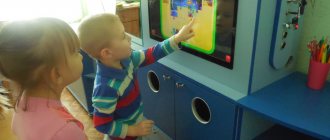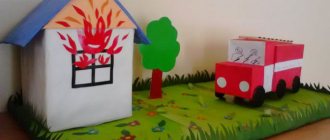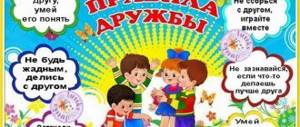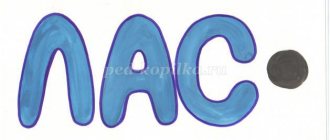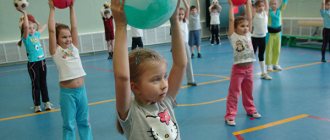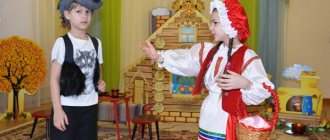Military professions always excite our imagination. The most dangerous, perhaps, is the pilot, because he is exposed not only to danger from the enemy, but also risks his life in the event of a malfunction of the aircraft.
Teach children about military professions using our pictures, coloring pages and presentations.
War is a terrible misfortune, and we doubly appreciate the exploits of those who go to fight for their land. In this regard, the attitude that a soldier receives from children and others in return for his service is especially important. We must instill respect for the military, who consciously took upon themselves the heavy burden of their profession. Pictures and presentations for children will help in educating and preparing the younger generation.
What is she like?
Children associate military professions with specific combat operations. In other words, the guys tend to think that officers, artillerymen, tank crews, etc. exist only in war. However, it is not. These professions are involved in units of the regular army, in the border troops, which carry out regular service.
Young guys develop an attitude towards military service from childhood. If parents and educators instill respect for the military, then young people will have a respectful attitude. Veterans of the Great Patriotic War are also representatives of these professions, and they expect recognition of their services from young people. The continuity of generations and the cultivation of love for one’s land are built on this.
The profession of “pilot” deserves special mention. The most tragic plots and stories on military topics are associated with it. The pilot in the sky is alone with the helm and the surrounding celestial space. It was the pilot in the Great Patriotic War who was capable of inflicting an unexpected fatal blow on the enemy. In the post-war period, many children dreamed of this type of activity, as later of astronautics. The symbolic image of a romantic military man, such as the pilot-writer Antoine de Saint-Exupéry, forever entered the world of literature and the hearts of people thanks to the works “The Little Prince” and “Planet of People”. The pilot does not just cut through the heavens: he talks with the stars.
see presentation
Planned results: be able to maintain a conversation about military professions, reason, express your point of view, solve riddles with interest; express friendly, positive emotions (interest, joy, pleasure) when interacting with the teacher and peers in solving gaming and cognitive tasks. Materials and equipment: children’s drawings depicting the military and military equipment, A. Mityaev’s story “Who is more needed?”, poems by S. Marshak “February”, N. Naydenova “Let there be peace!”, photographs depicting the military, their training, riddles and poems about the military and military equipment, a recording of the song “Victory Day”. Contents of children's organized activities. Introductory word from the teacher. Reading of N. Tomilin’s poem “Victory Day”:
Pobnda Day, May 9, is a holiday of peace in the country and spring. On this day we remember the soldiers who did not return to their families from the war. On this holiday we honor the grandfathers who defended their native country, who gave victory to the peoples and who returned peace and spring to us!
Questions for children: - What is the name of our country? — What holiday will our country celebrate on May 9? — What do you know about the Great Patriotic War? — From whom should we protect our Motherland? - Who knows who the defenders of the Fatherland are? —What should the military be like? — What should our defenders know and be able to do?
A didactic game “Choose a sign” is being played: defender of the Fatherland (which one) - brave, courageous, courageous, strong, smart, dexterous... Getting to know military professions. Questions for children: You already know that there are different types of troops in the army. Who serves on the tank? (Children: tank crews), (Children: helicopter pilot), Who serves on the border? (Children: border guards). Who flies a helicopter? (Children: helicopter pilots). Who serves on submarines? (Children: submariners). Who serves in military aviation? (Children: military pilots). What do you call a soldier who has no military equipment? (Children: infantryman). Who finds mines on the field? Children: (Sapper). Who treats wounded soldiers? (Children: Military doctor). The teacher invites the children to guess riddles: There is an iron whale underwater, day and night it does not sleep. Day and night under water it protects our peace. (Submarine) It flies, but not an airplane, not a glider or a bird, With a large propeller above its head, where it wants to land. (Helicopter) I am an umbrella - all white - white, I am big and very brave. I fly through the air and bring people down from the clouds. (Parachute) For him, his home is our airfield. He came a long way to get some rest. And when he rests, he will take flight again (Airplane). Children, prepared in advance, read poems - riddles about military professions: “At night, at noon, at dawn, he carries out his service in secret. On the path, on the shore, Blocking the enemy’s path” (Border Guard). “The plane is taking off, I’m ready to be in flight. I’m waiting for that cherished order to protect you from heaven! (Military pilot, pilot). “His car is all armored, like a turtle. After all, in war as in war, there should be no fear! Gun barrel in front: Danger! The enemy doesn’t come near!” (Tankman). “In this dark blue uniform he defends the country, And in a huge submarine he sinks to the bottom. Protecting the ocean, I was in the ports of a dozen countries!” (Submariner). “A strong, durable parachute opened behind his back, and in a few minutes he sank to the ground. He will pass through the forest and the ford, but he will find the enemy!” (Paratrooper). Where we are, there is victory!” - Our motto is glorious, fighting. We have been running from sea to shore for centuries, running like a “stone” wall! (Marines). Physical education lesson: The hands were made to fly apart - it turned out to be an airplane Swinging the wing back and forth, Do it once and do it twice. Keep your arms at your sides. And look at your friend. Get down quickly and sit down to land. Reading the story by A. Mityaev “Who is more needed?” “Who is more needed in war? Rocketman or tankman? Tankman or pilot? Pilot or sailor? Sailor or airborne paratrooper? It is impossible to answer these questions. Open your palm. Which finger is needed? Everyone is needed. You can't hit with just one finger - you need to clench all your fingers into a fist. And in war, the enemy will receive a strong blow when rocket men, tank crews, pilots, sailors, infantrymen and airborne paratroopers strike the enemy together.” While listening to the story, the children, together with the teacher, do finger exercises - bending their fingers towards the palms of their hands, listing the warriors - defenders. Educator: Now there is no war, and we live in peacetime. Why is an army needed in peacetime? (Children's assumptions). The army must always be ready to repel enemy attacks. What do soldiers in the army do in peacetime? (Children's assumptions) That's right, soldiers study and train. Officers teach and train soldiers. To defeat the enemy, soldiers and officers must be brave, strong, fast, and accurate. And to become like that, of course, you need to play sports. Now we will look at photographs of how soldiers live and train. Children recite by heart N. Naydenova’s poem “Let there be peace”: “Let the sky be blue, let no smoke billow in the sky, Let the menacing guns be silent, and the machine guns not fire, So that people and cities can live. Peace is always needed on earth!” An excerpt from the song “Victory Day” is played. During the song, the teacher shows photos of tank crews, sailors, and soldiers from the Second World War. Children are invited to complement the teacher’s story, where the words should be heard: soldiers, sailors, pilots. The teacher complements their stories, tries to make them expanded, while showing illustrations of military personnel and military equipment that are used in various activities. The teacher ends the lesson with verses: “You must definitely study any military profession, in order to be a support for the country, so that there is no war in the world.”
Training aids
Pictures will help kids learn more about what military professions exist. Work with them should be done under the guidance of adults, since it requires a thorough explanation of any nuance. First, have the child list the professions that he knows. At the second stage, the child’s education begins: tell him about the purpose of those military professions that he does not yet have an idea about.
At the next stage of getting to know the pictures, the baby will be able to find pictures himself according to the names of professions.
You can download general archive pictures of military professions here.
Coloring pages
Progress of the game:
Children are presented with pictures or photographs depicting weapons, equipment, objects and attributes used by the military . Based on the choice that the child made, the military profession .
Name what troops the child wants to serve in when he grows up.
Didactic game “Who protects our borders”
Objectives: To consolidate children's knowledge about military air , land, and sea transport; develop cognitive activity; educate patriots of your country.
Progress of the game:
To carry out the game, preliminary work is required to familiarize preschoolers with maps of Russia , region, city, etc.
A color physical map of Russia in A. 4 format is cut into 6-8 parts (depending on the age of the children )
. It is proposed to compose a whole map of the country from parts. Complication: assemble the map for a while.
Didactic game “Guess the military profession ”
Objectives: to consolidate children’s knowledge about military professions (tanker, military pilot , artilleryman, border guard, etc.); develop observation and memory; cultivate love for the Motherland.

